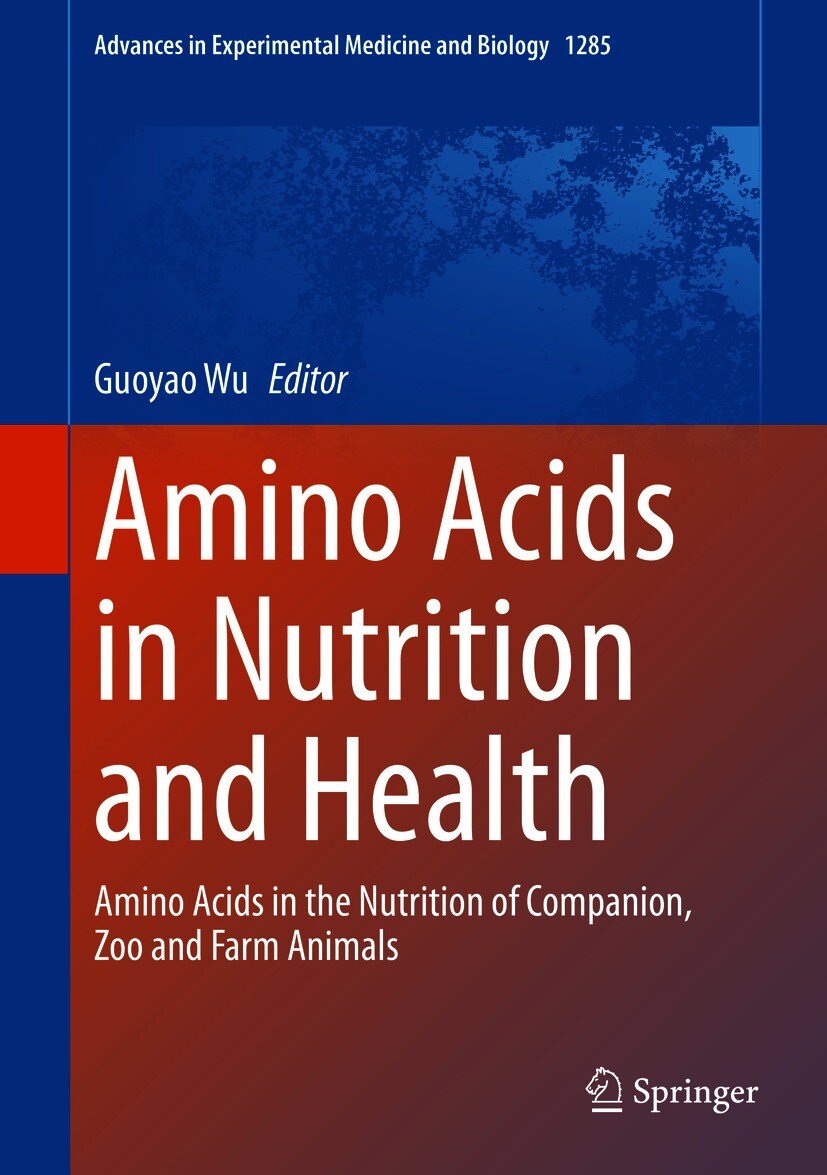Amino acids (AAs) are not only building blocks of protein, but are also signalling molecules as well as regulators of gene expression and the protein phosphorylation cascade. Additionally, AAs are key precursors for syntheses of hormones and low-molecular weight nitrogenous substances with each having enormous biological importance. For example, physiological concentrations of AA metabolites (e.g., nitric oxide, polyamines, glutathione, taurine, thyroid hormones, and serotonin) are required for cell functions. Growing evidence shows that humans and animals have dietary requirements for all proteinogenic AAs. Mammals, birds and fish also have species- and age-dependent needs for some AA-related substances. However, elevated levels of other products (e.g., ammonia, homocysteine, H
2S, and asymmetric dimethylarginine) are pathogenic factors for neurological disorders, oxidative stress, and cardiovascular disease. Thus, optimal amounts of AAs and their ratios in diets and circulation are crucial for whole body homeostasis and health. Adequate provision of one or a mixture of functional AAs or metabolites may be beneficial for ameliorating health problems at various stages of the life cycle (e.g., fetal growth restriction, neonatal morbidity and mortality, weaning-associated intestinal dysfunction and wasting syndrome, obesity, diabetes, cardiovascular disease, the metabolic syndrome, and infertility). Dietary supplementation of these nutrients can also optimize the efficiency of metabolic transformations to enhance muscle growth, milk production, and athletic performance, while preventing excess fat deposition and reducing adiposity. Therefore, functional AAs hold great promise in improving the growth, health and well-being of individuals.
Chapter 7 is available open access under a Creative Commons Attribution 4.0 International License via link.springer.com.
Guoyao Wu is a Distinguished Professor, University Faculty Fellow, and AgriLife Research Senior Faculty Fellow in the Department of Animal Science. He also holds appointments with the Graduate Faculty of Nutrition, the Departments of Systems Biology and Translational Medicine and Veterinary Integrative Biosciences.
He earned his bachelor's degree in animal science from South China Agricultural University in Guangzhou, a master's degree in animal nutrition from Beijing Agricultural University, and a master's degree and doctorate in animal biochemistry from the University of Alberta in Canada. He received postdoctoral training in biochemistry and nutrition at McGill University Medical School in Montreal, Canada, and at the Memorial University of Newfoundland Medical School in St. John's, Canada.
Dr. Wu teaches graduate courses in protein metabolism and nutritional biochemistry. He conducts research in protein and amino acid metabolism at molecular, cellular, and whole body levels . The animal models used in his research include cattle, chicks, pigs, rats, and sheep
